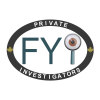Navigating Workplace Investigations: A Comprehensive Guide for Employers
Introduction:
Workplace investigations are a crucial aspect of maintaining a healthy and productive work environment. In this comprehensive guide, we’ll explore the key components of conducting effective workplace investigations, providing employers with the tools and knowledge needed to navigate sensitive situations successfully.
1. When to Initiate a Workplace Investigation:
Determining when to launch a workplace investigation is a critical decision for employers. We’ll discuss common triggers and situations that necessitate an investigation, ensuring a proactive approach to workplace issues.
[FAQ Section]
- Q: What should prompt an employer to initiate a workplace investigation?
- A: We’ll outline various scenarios such as complaints, conflicts, or suspicious behavior that may warrant an investigation and how to assess their severity.
2. The Investigations Guide:
Understanding the stages of the investigation process is essential for a thorough and fair inquiry. We’ll outline the step-by-step process, from receiving a complaint to reaching a resolution.
[FAQ Section]
- Q: What steps should be included in a standard workplace investigation process?
- A: We’ll provide a detailed breakdown of the investigation process, including planning, conducting interviews, and reaching conclusions.
3. Maintaining Confidentiality:
Preserving confidentiality is crucial to protect the integrity of the investigation and the parties involved. We’ll explore strategies for maintaining discretion and handling sensitive information appropriately.
[FAQ Section]
- Q: How can employers balance the need for confidentiality with transparency during an investigation?
- A: We’ll discuss the importance of confidentiality and provide tips for communicating appropriately to maintain trust.
4. Handling Employee Interviews:
Conducting effective interviews is a key aspect of any workplace investigation. We’ll provide guidance on preparing for and conducting interviews, ensuring a fair and unbiased process.
[FAQ Section]
- Q: How can employers handle reluctant or uncooperative employees during an interview?
- A: We’ll offer strategies for managing challenging interview situations and obtaining necessary information.
5. Gathering and Analyzing Evidence:
Collecting relevant evidence is critical to reaching well-informed conclusions. We’ll discuss the types of evidence to consider and methods for analyzing information objectively.
[FAQ Section]
- Q: What types of evidence are typically collected during a workplace investigation?
- A: We’ll outline common forms of evidence, such as documents, witness statements, and electronic records, and their significance in an investigation.
6. Decision-Making and Conclusions:
Drawing conclusions and making decisions based on the investigation findings is a delicate process. We’ll provide insights into reaching fair and well-supported conclusions.
[FAQ Section]
- Q: How can employers ensure the objectivity and fairness of their decision-making process?
- A: We’ll offer tips for making unbiased decisions and minimizing the risk of legal challenges.
7. Implementing Corrective Actions:
Once conclusions are reached, implementing appropriate corrective actions is essential. We’ll discuss strategies for addressing issues identified during the investigation and fostering a positive workplace culture.
[FAQ Section]
- Q: What are some examples of corrective actions employers can take following an investigation?
- A: We’ll provide examples of corrective measures, such as training programs, policy revisions, and disciplinary actions, based on the nature of the issues.
8. Communication Strategies:
Effective communication is key throughout the investigation process. We’ll explore communication strategies for keeping all stakeholders informed while maintaining professionalism and confidentiality.
[FAQ Section]
- Q: How can employers communicate investigation outcomes to involved parties and the wider team?
- A: We’ll provide guidelines for crafting clear and concise communication messages to address concerns and maintain transparency.
9. Legal Considerations:
Understanding the legal aspects of workplace investigations is crucial to avoid potential legal pitfalls. We’ll provide an overview of key legal considerations and the importance of compliance.
[FAQ Section]
- Q: What legal obligations do employers have during a workplace investigation?
- A: We’ll outline legal obligations related to privacy, anti-discrimination laws, and other relevant regulations, helping employers navigate potential legal challenges.
10. Best Practices for Workplace Investigations Guide:
Employers can enhance the effectiveness of their investigations by following best practices. We’ll highlight proactive measures and strategies for continuous improvement in the workplace investigation process.
[FAQ Section]
- Q: How can employers continually improve their workplace investigation procedures?
- A: We’ll offer tips for conducting post-investigation reviews, seeking feedback, and adapting processes to address evolving challenges.
Conclusion:
Navigating workplace investigations requires a delicate balance of legal knowledge, communication skills, and a commitment to fairness. By implementing the strategies outlined in this guide, employers can foster a transparent and healthy work environment while effectively addressing workplace issues.
[FAQ Section]
- Q: When should an employer seek external assistance for a workplace investigation?
- A: We’ll discuss situations where external assistance may be warranted and the benefits of involving professionals in certain cases.Gu

